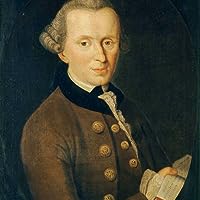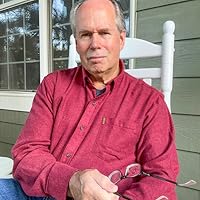Ethics Quotes
Quotes tagged as "ethics"
Showing 181-210 of 1,862

“We live in a system that espouses merit, equality, and a level playing field, but exalts those with wealth, power, and celebrity, however gained.”
― Ethical Ambition: Living a Life of Meaning and Worth
― Ethical Ambition: Living a Life of Meaning and Worth

“Most of us believe that eating meat is natural because humans have hunted and consumed animals for millennia. And it is true that we have been eating meat as part of an omnivorous diet for at least two million years (though for the majority of this time our diet was still primarily vegetarian). But to be fair, we must acknowledge that infanticide, murder, rape, and cannibalism are at least as old as meat eating, and are therefore arguably as 'natural'--and yet we don't invoke the history of these acts as justification for them. As with other acts of violence, when it comes to eating meat, we must differentiate between natural and justifiable.”
― Why We Love Dogs, Eat Pigs, and Wear Cows: An Introduction to Carnism
― Why We Love Dogs, Eat Pigs, and Wear Cows: An Introduction to Carnism

“It would be advisable to think of progress in the crudest, most basic terms: that no one should go hungry anymore, that there should be no more torture, no more Auschwitz. Only then will the idea of progress be free from lies.”
―
―

“As a convinced atheist, I ought to agree with Voltaire that Judaism is not just one more religion, but in its way the root of religious evil. Without the stern, joyless rabbis and their 613 dour prohibitions, we might have avoided the whole nightmare of the Old Testament, and the brutal, crude wrenching of that into prophecy-derived Christianity, and the later plagiarism and mutation of Judaism and Christianity into the various rival forms of Islam. Much of the time, I do concur with Voltaire, but not without acknowledging that Judaism is dialectical. There is, after all, a specifically Jewish version of the eighteenth-century Enlightenment, with a specifically Jewish name—the Haskalah—for itself. The term derives from the word for 'mind' or 'intellect,' and it is naturally associated with ethics rather than rituals, life rather than prohibitions, and assimilation over 'exile' or 'return.' It's everlastingly linked to the name of the great German teacher Moses Mendelssohn, one of those conspicuous Jewish hunchbacks who so upset and embarrassed Isaiah Berlin. (The other way to upset or embarrass Berlin, I found, was to mention that he himself was a cousin of Menachem Schneerson, the 'messianic' Lubavitcher rebbe.) However, even pre-enlightenment Judaism forces its adherents to study and think, it reluctantly teaches them what others think, and it may even teach them how to think also.”
― Hitch 22: A Memoir
― Hitch 22: A Memoir

“Jesus was not content to derive his ethics from the scriptures of his upbringing. He explicitly departed from them. [...] Since a principal thesis of this chapter is that we do not, and should not, derive our morals from scripture, Jesus has to be honoured as a model for that very thesis.”
― The God Delusion
― The God Delusion

“Your life is a trajectory. Every choice you make alters that trajectory, in a positive or negative way. Will you categorize that dinner with friends as a business expense? Will you be honest with your daughter? Will you take more credit than you’re due? These are just the small questions that we face every day, and little by little, the answers influence the trajectory of our lives and beings.”
―
―

“A man who wills commands something within himself that renders obedience, or that he believes renders obedience.”
― Beyond Good and Evil
― Beyond Good and Evil

“Can you hold a red-hot iron rod in your hand merely because some one wants you to do so? Then, will it be right on your part to ask others to do the same thing just to satisfy your desires? If you cannot tolerate infliction of pain on your body or mind by others' words and actions, what right have you to do the same to others through your words and deeds?
Do unto others as you would like to be done by. Injury or violence done by you to any life in any form, animal or human, is as harmful as it would e if caused to your own self.”
―
Do unto others as you would like to be done by. Injury or violence done by you to any life in any form, animal or human, is as harmful as it would e if caused to your own self.”
―

“The good which every man, who follows after virtue, desires for himself he will also desire for other men...”
― Ethics
― Ethics

“Both those taking snaps and documentary photographers, however, have not understood 'information.' What they produce are camera memories, not information, and the better they do it, the more they prove the victory of the camera over the human being.”
― Towards a Philosophy of Photography
― Towards a Philosophy of Photography

“Even a purely moral act that has no hope of any immediate and visible political effect can gradually and indirectly, over time, gain in political significance.”
―
―
“We've also evolved the ability to simply 'pay it forward': I help you, somebody else will help me. I remember hearing a parable when I was younger, about a father who lifts his young son onto his back to carry him across a flooding river. 'When I am older,' said the boy to his father, 'I will carry you across this river as you now do for me.' 'No, you won't,' said the father stoically. 'When you are older you will have your own concerns. All I expect is that one day you will carry your own son across this river as I no do for you.' Cultivating this attitude is an important part of Humanism--to realize that life without God can be much more than a series of strict tit-for-tat transactions where you pay me and I pay you back. Learning to pay it forward can add a tremendous sense of meaning and dignity to our lives. Simply put, it feels good to give to others, whether we get back or not.”
― Good Without God: What a Billion Nonreligious People Do Believe
― Good Without God: What a Billion Nonreligious People Do Believe

“But it's a curse, a condemnation, like an act of provocation, to have been aroused from not being, to have been conjured up from a clot of dirt and hay and lit on fire and sent stumbling among the rocks and bones of this ruthless earth to weep and worry and wreak havoc and ponder little more than the impending return to oblivion, to invent hopes that are as elaborate as they are fraudulent and poorly constructed, and that burn off the moment they are dedicated, if not before, and are at best only true as we invent them for ourselves or tell them to others, around a fire, in a hovel, while we all freeze or starve or plot or contemplate treachery or betrayal or murder or despair of love, or make daughters and elaborately rejoice in them so that when they are cut down even more despair can be wrung from our hearts, which prove only to have been made for the purpose of being broken. And worse still, because broken hearts continue beating.”
― Enon
― Enon

“I'm beginning to wonder," said Kent, sitting down now on an overturned wooden tub. "Who do I serve? Why am I here?"
You are here, because, in the expanding ethical ambiguity of our situation, you are steadfast in your righteousness. It is to you, our banished friend, that we all turn—a light amid the dark dealings of family and politics. You are the moral backbone on which the rest of us hang our bloody bits. Without you we are merely wiggly masses of desire writhing in our own devious bile."
Really?" asked the old knight.
Aye," said I.
I'm not sure I want to keep company with you lot, then.”
― Fool
You are here, because, in the expanding ethical ambiguity of our situation, you are steadfast in your righteousness. It is to you, our banished friend, that we all turn—a light amid the dark dealings of family and politics. You are the moral backbone on which the rest of us hang our bloody bits. Without you we are merely wiggly masses of desire writhing in our own devious bile."
Really?" asked the old knight.
Aye," said I.
I'm not sure I want to keep company with you lot, then.”
― Fool

“Not only to myself or before the mirror or at the hour of my death, which I hope will be long in coming, but in the presence of my children and my wife and in the face of the peaceful life I’m building, I must acknowledge: (1) That under Stalin I wouldn’t have wasted my youth in the gulag or ended up with a bullet in the back of my head. (2) That in the McCarthy era I wouldn’t have lost my job or had to pump gas at a gas station. (3) That under Hitler, however, I would have been one of those who chose the path of exile, and that under Franco I wouldn’t have composed sonnets to the caudillo or the Holy Virgin like so many lifelong democrats. One thing is as true as the other. My bravery has its limits, certainly, but so does what I’m willing to swallow. Everything that begins as comedy ends as tragicomedy.”
― The Savage Detectives
― The Savage Detectives

“The whole interest of my reason, whether speculative or practical, is concentrated in the three following questions: What can I know? What should I do? What may I hope? (Critique of Pure Reason”
―
―

“Leadership is never an avenue to be self-serving but,a platform to render great service to people.”
―
―

“Ethically, she couldn't cause the suffering of any living thing. Logically, bacon cheeseburgers were delicious.”
― We Shadows
― We Shadows

“What it means to be a good person, a moral person, is calculated differently in times of crisis than in ordinary circumstances,” she says. She pulls up a slide of people having a picnic by a lake. Blue skies, green trees, white people.
“Suppose you go with some friends to the park to have a picnic. This act is, of course, morally neutral, but if you witness a group of children drowning in the lake and you continue to eat and chat, you have become monstrous.”
― Weather
“Suppose you go with some friends to the park to have a picnic. This act is, of course, morally neutral, but if you witness a group of children drowning in the lake and you continue to eat and chat, you have become monstrous.”
― Weather

“On the ethics of war the Quran and the New Testament are worlds apart. Whereas Jesus tells us to turn the other cheek, the Quran tells us, 'Whoso commits aggression against you, do you commit aggression against him' (2:194). The New Testament says nothing about how to wage war. The Quran, by contrast, is filled with just-war precepts. Here war is allowed in self-defense (2:190; 22:39), but hell is the punishment for killing other Muslims (4:93), and the execution of prisoners of war is explicitly condemned (47:4). Whether in the abstract is is better to rely on a scripture that regulates war or a scripture that hopes war away is an open question, but no Muslim-majority country has yet dropped an atomic bomb in war.”
― God Is Not One: The Eight Rival Religions That Run the World--and Why Their Differences Matter
― God Is Not One: The Eight Rival Religions That Run the World--and Why Their Differences Matter

“For though I was raised Protestant, my true religion is actually civility. Please note that I do not call my faith “politeness.” That’s part of it, yes, but I say civility because I believe that good manners are essential to the preservation of humanity— one’s own and others’— but only to the extent that that civility is honest and reasonable, not merely the mindless handmaiden of propriety.”
― Lillian Boxfish Takes a Walk
― Lillian Boxfish Takes a Walk

“Reason forbade me many things which,
Instinctively, my nature was attracted to;
And a perpetual loss I feel if, knowing,
I believe a falsehood or deny the truth.”
―
Instinctively, my nature was attracted to;
And a perpetual loss I feel if, knowing,
I believe a falsehood or deny the truth.”
―

“I use “anticapitalist” because conservative defenders of capitalism regularly say their liberal and socialist opponents are against capitalism. They say efforts to provide a safety net for all people are “anticapitalist.” They say attempts to prevent monopolies are “anticapitalist.” They say efforts that strengthen weak unions and weaken exploitative owners are “anticapitalist.” They say plans to normalize worker ownership and regulations protecting consumers, workers, and environments from big business are “anticapitalist.” They say laws taxing the richest more than the middle class, redistributing pilfered wealth, and guaranteeing basic incomes are “anticapitalist.” They say wars to end poverty are “anticapitalist.” They say campaigns to remove the profit motive from essential life sectors like education, healthcare, utilities, mass media, and incarceration are “anticapitalist.”
In doing so, these conservative defenders are defining capitalism. They define capitalism as the freedom to exploit people into economic ruin; the freedom to assassinate unions; the freedom to prey on unprotected consumers, workers, and environments; the freedom to value quarterly profits over climate change; the freedom to undermine small businesses and cushion corporations; the freedom from competition; the freedom not to pay taxes; the freedom to heave the tax burden onto the middle and lower classes; the freedom to commodify everything and everyone; the freedom to keep poor people poor and middle-income people struggling to stay middle income, and make rich people richer. The history of capitalism—of world warring, classing, slave trading, enslaving, colonizing, depressing wages, and dispossessing land and labor and resources and rights—bears out the conservative definition of capitalism.”
― How to Be an Antiracist
In doing so, these conservative defenders are defining capitalism. They define capitalism as the freedom to exploit people into economic ruin; the freedom to assassinate unions; the freedom to prey on unprotected consumers, workers, and environments; the freedom to value quarterly profits over climate change; the freedom to undermine small businesses and cushion corporations; the freedom from competition; the freedom not to pay taxes; the freedom to heave the tax burden onto the middle and lower classes; the freedom to commodify everything and everyone; the freedom to keep poor people poor and middle-income people struggling to stay middle income, and make rich people richer. The history of capitalism—of world warring, classing, slave trading, enslaving, colonizing, depressing wages, and dispossessing land and labor and resources and rights—bears out the conservative definition of capitalism.”
― How to Be an Antiracist

“We stay the same as we've always been, keeping to the path we've walked our whole lives. Paths that carry so much importance and perceived stability that we are utterly convinced it is the only one to walk – that anyone not walking it with us is being misled.”
― Rise of the Morningstar
― Rise of the Morningstar

“Morality consists in this for each individual: to attempt each time to extend its region of clear expression, to try to augment its amplitude, so as to produce a free act that expresses the most possible in one given condition or another. -- Gilles Deleuze, The Fold: Leibniz and the Baroque, 73”
―
―
“Can we be sure that they are incapable of the feelings or sentiments that are believed to place them on a lower scale than humans? Do we deny sensitivity to all of the so-called lower orders to blunt, protect, and, ultimately, deny our own? We will see that bees can grieve over teh loss of a queen, sound war cries or hum with contentment; they can be angry, docile, ferocious, playful, aggressive, appear happy, or utter pitiful sounds of distress. are these not emotions akin to ours, merely expressed differently?”
―
―
All Quotes
|
My Quotes
|
Add A Quote
Browse By Tag
- Love Quotes 97k
- Life Quotes 75.5k
- Inspirational Quotes 72.5k
- Humor Quotes 43.5k
- Philosophy Quotes 29.5k
- Inspirational Quotes Quotes 27k
- God Quotes 26k
- Truth Quotes 23.5k
- Wisdom Quotes 23.5k
- Romance Quotes 23k
- Poetry Quotes 22k
- Death Quotes 20k
- Happiness Quotes 18.5k
- Life Lessons Quotes 18.5k
- Hope Quotes 18k
- Faith Quotes 18k
- Quotes Quotes 16.5k
- Inspiration Quotes 16.5k
- Spirituality Quotes 15k
- Religion Quotes 15k
- Motivational Quotes 15k
- Writing Quotes 14.5k
- Relationships Quotes 14.5k
- Life Quotes Quotes 14k
- Love Quotes Quotes 13.5k
- Success Quotes 13.5k
- Time Quotes 12.5k
- Motivation Quotes 12k
- Science Quotes 11.5k
- Knowledge Quotes 11k




